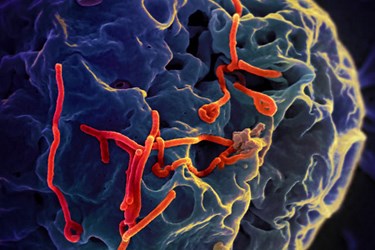FDA Chief Details Agency Initiatives To Combat Ebola
By Nick Otto

FDA Commissioner Margaret Hamburg this week further detailed the agency’s efforts in battling the Ebola outbreak that began in West Africa.
In a blog post, Hamburg notes that the FDA’s Ebola task force is coordinating with federal colleagues, international counterparts, members of the scientific community and industry to expedite the development of medical products — such as diagnostic kits, treatments, and vaccines — to “potentially bring the epidemic under control as quickly as possible.”
“Our medical product reviewers have been working tirelessly with sponsors to clarify regulatory requirements, provide input on manufacturing and pre-clinical and clinical trial designs, and expedite the regulatory review of data as it is received,” she says.
Additionally, she notes in the blog, the agency has been in touch with “dozens” of drug, vaccine, and device makers, and still remains in touch with roughly 20 sponsors that have Ebola-related products in the pipeline.
International counterparts, including The World Health Organization (WHO), European Medicines Agency, and Health Canada, have been exchanging information with the FDA on other investigational Ebola treatment products to “support international response efforts,” Hamburg says.
Hamburg adds that the agency is continuing to accelerate product development of Ebola treatment products through the establishment of clinical trials, which she says “is the most efficient way to show whether these new products actually work.”
According to her blog post, she says the FDA will continue to provide access to investigational products through the agency’s “compassionate use” program — allowing access to products outside a clinical setting if the expected benefits outweigh potential risks.
In addition to compassionate use, she acknowledges the agency’s use of emergency use authorization (EUA) for products, allowing utilization of unapproved products during emergencies. To date, the FDA has authorizes five products with an EUA: one developed by the Department of Defense, two developed by Centers for Disease Control (CDC), and earlier this week, two diagnostic tests developed by BioFire Defense for the expedited detection of the Ebola Zaire virus.
Aside from encouraging the development of products, the agency has also taken steps to deter fraudulent claims of Ebola treatments. According to NPR, the agency has already sent three warning letters to companies making false claims about treating the disease.
“I could not be more proud of the dedication and leadership that the FDA staff involved in this response has shown,” Hamburg said in her blog post.
As of October 29, more than 13,000 cases of Ebola have been confirmed, resulting in close to 5,000 confirmed deaths, according to the CDC.
Image Credit: “Ebola Virus.” NIAID. 2014. CC BY 2.0: https://creativecommons.org/licenses/by/2.0/
